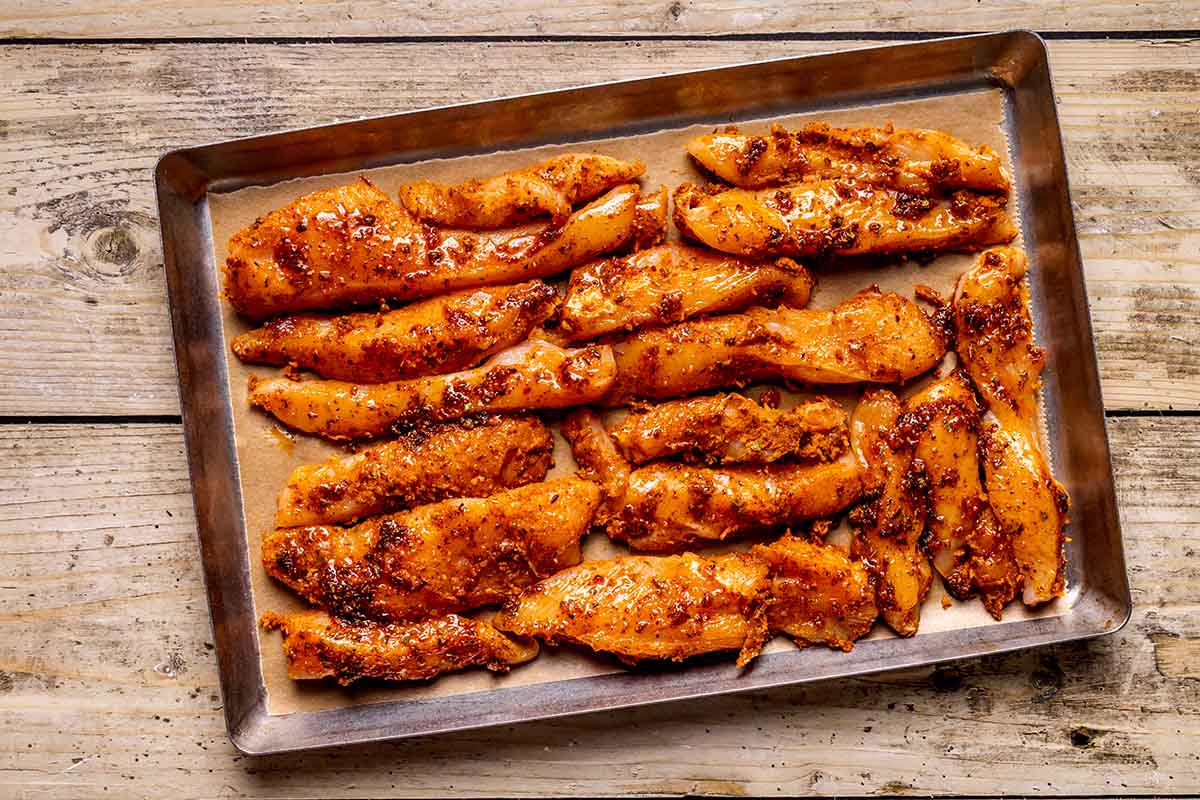Cooking juicy and flavorful chicken can seem like a challenge. We’ve all experienced dry, rubbery chicken breasts or other cuts that leave you disappointed. However, with the right techniques, making chicken that is moist and tender on the inside is easy. In this comprehensive guide, I’ll walk you through the key steps and methods for ensuring your chicken is succulent and delicious every time.
Why Juicy Chicken Matters
Before jumping into the how-to, let’s look at why juicy chicken should be a priority in the first place. When chicken is juicy on the inside, it is:
-
More flavorful – Moisture allows the chicken to absorb spices and seasonings more effectively Dry chicken loses its ability to absorb flavors
-
More tender – The juices keep the chicken fibers moist, preventing them from becoming tough and chewy when cooked.
-
Safer to eat – Chicken cooked to the proper internal temperature with juices intact is less likely to contain harmful bacteria.
-
More enjoyable – Face it dry chicken isn’t fun to eat! Juicy chicken is satisfying.
So learning how to make your chicken juicy on the inside will instantly elevate your cooking game. Let’s get into the methods that make it possible.
Brining
Brining is hands-down one of the most effective ways to keep chicken irresistibly juicy. It works by submerging the chicken in a saltwater solution before cooking. Over time, the chicken absorbs some of the surrounding liquid, plumping up the cells and ensuring it retains moisture during cooking.
Here is a simple brine recipe:
- 1 quart water
- 1/4 cup kosher salt
- 2 tablespoons sugar (optional)
- Herbs, spices, citrus (optional)
Combine the water, salt, and any other ingredients in a large container. Submerge the chicken fully in the brine, cover, and refrigerate for 1-2 hours (boneless breasts) or up to 8 hours (whole chicken). Rinse the chicken, pat it dry, and proceed with your cooking method. The brine ensures it stays incredibly moist!
Marinades
Similar to brines, marinades impart flavor and moisture when the chicken soaks in them prior to cooking. A marinade is typically an acidic liquid, like lemon juice, vinegar, yogurt or wine. The acid slightly breaks down the chicken’s proteins on the surface, allowing it to retain more moisture.
An easy marinade can be made with:
- 1/4 cup olive oil
- 1/4 cup lemon juice or vinegar
- 2 cloves garlic, minced
- 1 tbsp dried oregano
- Salt and pepper
Combine the ingredients, pour over the chicken in a zip top bag or baking dish, and refrigerate for 30 minutes up to overnight. For optimal safety and flavor, discard used marinade.
Gentle, Even Cooking
Once the chicken is brined or marinated, it’s time to cook it while retaining that all-important moisture and juiciness. Avoid overcooking with these tips:
-
Cook chicken to 165°F internal temperature. Overcooking dries it out.
-
Bake, grill or pan fry using medium or medium-low heat. High heat causes moisture loss.
-
Bake in a foil tent to trap in steam.
-
Fry or grill skin-side down first for crispy skin without overcooking meat.
-
Butterfly or pound thick breasts to an even thickness so they cook evenly.
Basting
Basting chicken as it cooks adds back any surface moisture lost during cooking. Baste by brushing chicken with melted butter, olive oil, sauce or pan juices every 10-15 minutes. This seals the surface and prevents the meat from drying out.
Resting
After cooking, always allow chicken to rest for 5-10 minutes before cutting into it. Resting gives the juices time to redistribute throughout the meat. Skipping this leads to juice loss when you cut into it.
Seasoning
Properly seasoning chicken is key for juiciness. Salt helps retain moisture, while spices and herbs add flavor. Try brining, marinating, rubbing seasonings under skin, or stuffing chicken breasts prior to cooking.

Why Do You Need Special Tips for Grilling Chicken Breasts?
Chicken breasts don’t have much fat, so you can’t just take one out of the package, throw it on the grill, and have it turn out moist and delicious. For good results with boneless and skinless chicken, you need to use techniques designed to keep the chicken juicy.
Can you make grilled chicken breasts without an Outdoor Grill?
I love to make grilled chicken in the summer when I can cook outside on the patio, but if you don’t have an outdoor grill or it’s not grilling weather any of my grilled chicken recipes can also be cooked on a Stovetop Grill Pan (affiliate link) or in an electric griller such as a George Foreman Grill (affiliate link).Remember the George Foreman Grill cooks both sides at once, so the grilling time will be shorter.
STOP making dry chicken breast! This is HOW you make JUICY chicken #shorts #viralshorts #chicken
FAQ
How to make chicken juicy inside?
The absolute best way to prevent a dry chicken breast is to use a meat thermometer. Remove chicken from heat as soon as the thickest part of the chicken reaches 165°F (74°C). You can also place a pad of butter on top of the chicken while cooking to help keep it moist.
What can you put inside a chicken to keep it moist?
Brine. Like a marinade, a brine helps chicken breast soak up as much moisture as possible before cooking.
How to make chicken not dry inside?
Don’t forget to allow the chicken breast to rest for 3-5 minutes after cooking so the juices can re-distribute and the breast doesn’t dry out.
What is the secret to moist chicken?
Most recipes use butter or oil for cooking chicken, but mayo is the better fat option when it comes to producing juicy chicken. While it cooks, the chicken will absorb fat from the egg and oil in the mayo, keeping it moist while adding flavor.
